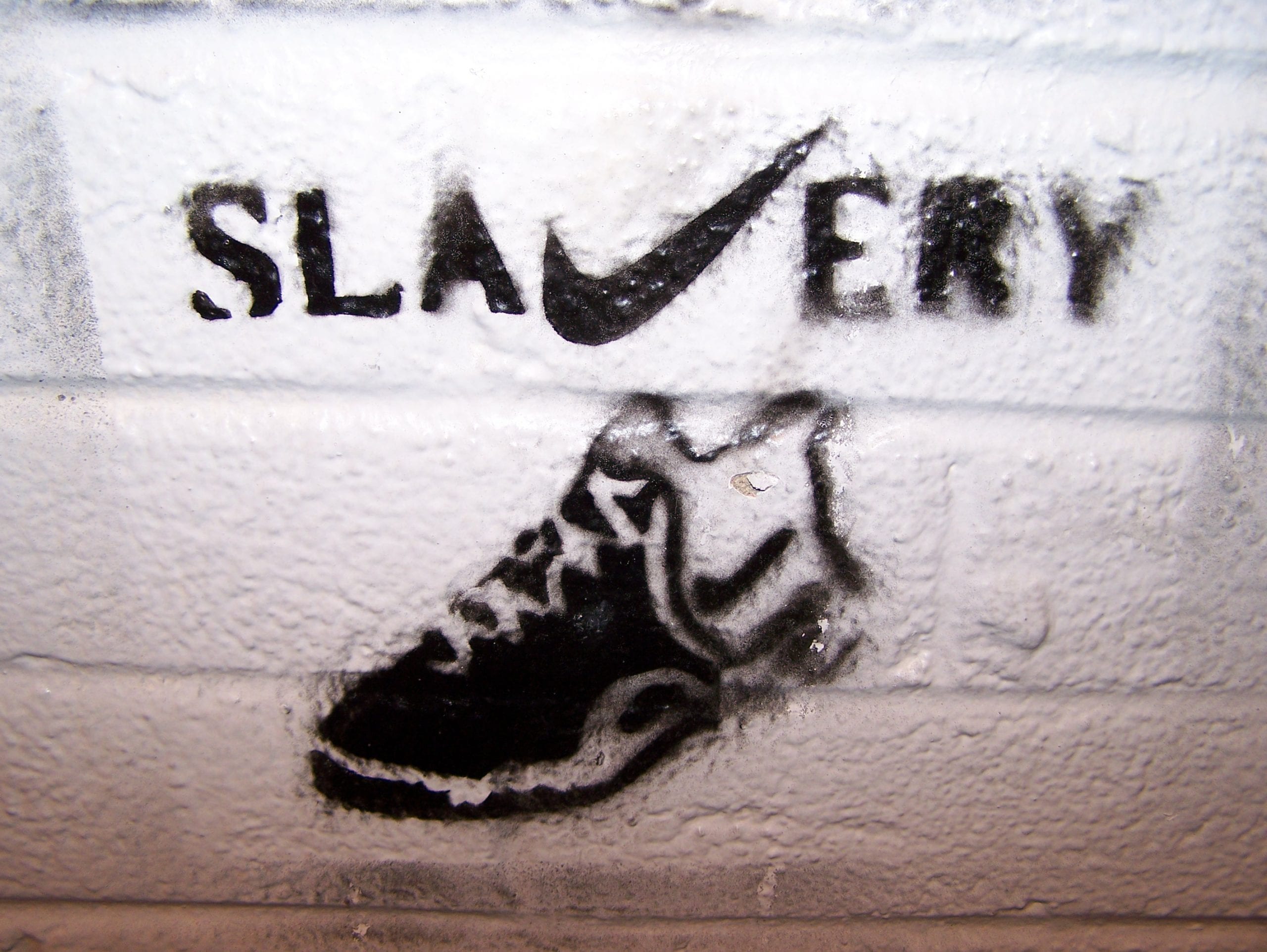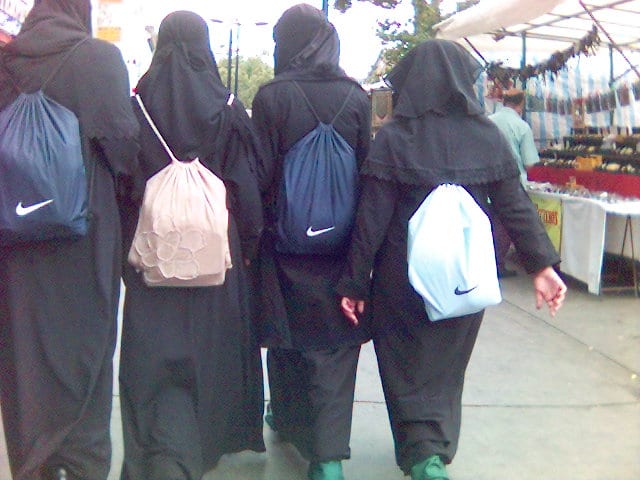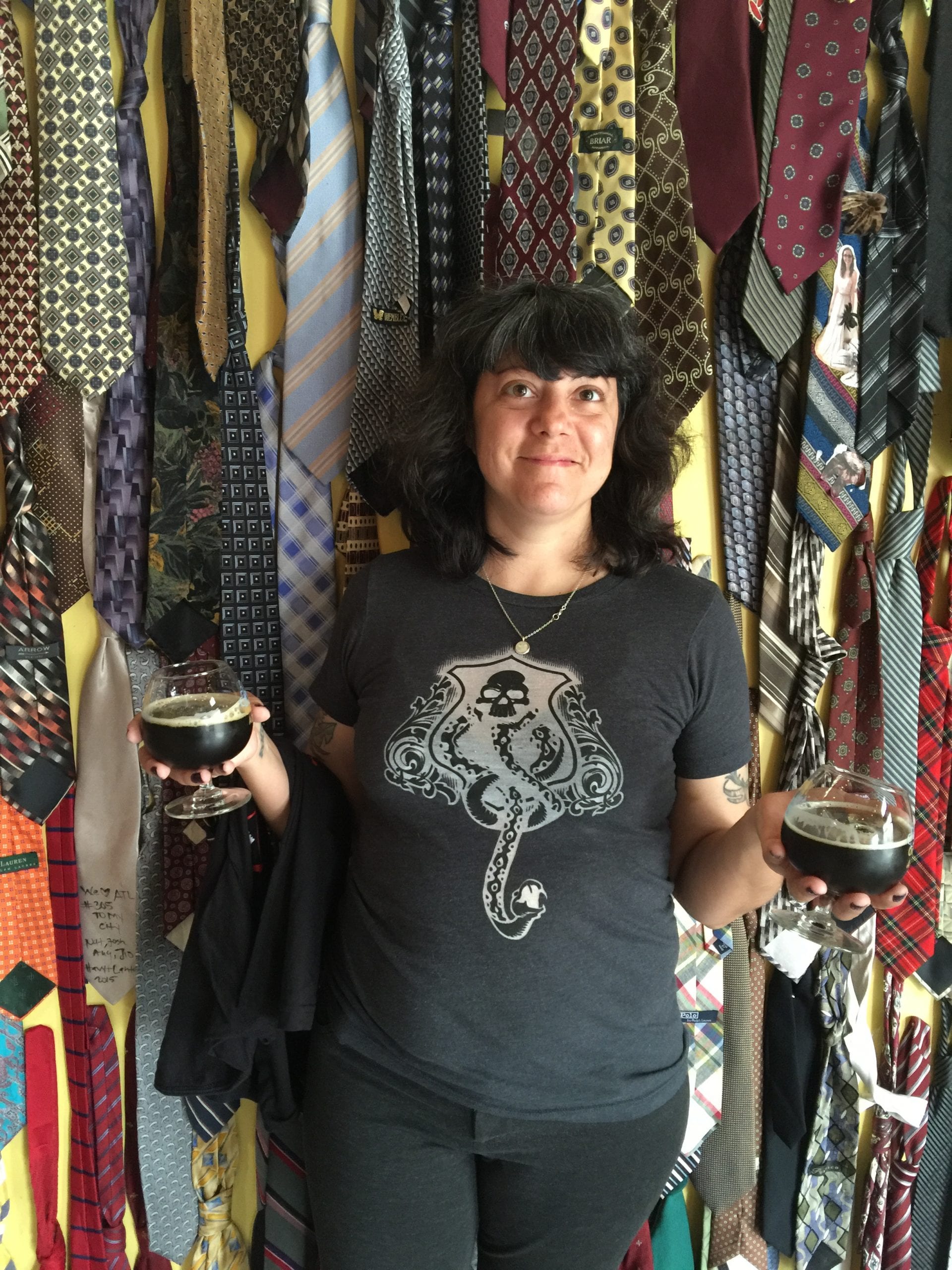
Get off the bus near the University of Georgia's Tate Center and you'll see a campus awash with Nike swooshes. Shirts, shoes, shorts, socks, hats and backpacks all proudly bear the company's distinctive logo in the school's iconic red and black colors. In fact, you have to look hard to find any of Nike's competitors' logos on the student body. Some of this may have to do with the millions of dollars the athletic wear giant pays to UGA for the privilege of outfitting the university's athletes. But a business's decision to stock their store with swooshes is only one side of the economic coin. Any ECON 101 student can tell you that demand has a big part to play.
So what is it that makes students want to sport the Nike logo, essentially giving the company free advertising? The answer has to do with a concept called consumer-brand identification, or CBI, which ties in elements of sociology, psychology, and anthropology. The basic rundown is this: if Nike can convince us that they have the same values as we do, not only will we buy their products, but we'll defend that brand choice to our Adidas-wearing friends. Some people even identify so fiercely with their brand of choice that they are willing to permanently bear corporate logos on their bodies.

Take Nike's “Come out of Nowhere†commercial for example. It features a series of relatable kids (nearly everyone can relate to an underdog) being told they can't compete. Instead of sulking off, heads hung low, the young heroes persevere and eventually succeed. Narrating their story is LeBron James, the championship-winning basketball player, and if you're paying attention, you can see that all of the kids in the commercial are wearing his jersey number. Nike has given us visions of ourselves and grown them into champions with qualities we can all admire; qualities like strength and dedication.
So we go out to the store, walk up to the shoe section, and find out that those LeBron-endorsed kicks are going to run us around $150. Well, we need them, if we're going to start that new workout routine, right? Now is the point when a psychological process called confirmation bias steps in. We basically invent evidence to support our decision so that we feel justified in our purchase. We want the shoes, so we're going to come up with a reason why it's a good choice to get them, despite the price tag.
In Ellen Langer's famous Copy Machine study, researchers found that the human mind craves reasons. The study involved research assistants asking to cut in front of people in line at a copy machine. When simply requesting to cut in, permission was granted about fifty percent of the time. When coupled with a reason, the cut-in rate jumped up to 94 percent. It didn't matter if the reason made sense or not, people in line just needed to hear a reason. That's why we're going to come up with a whole list of reasons that support what we already decided to do and hand over $150.
Say those new Nikes fit like a dream and we really do start hitting the gym. Now our initial perceived value of the shoes has combined with our satisfaction with the product. This leads us to trust in the brand, Nike, making us more likely to buy a pair of Nike socks to go with our fancy footwear. This is the recipe for what's known as ‘brand loyalty' and it's a big reason why corporations who spend the big bucks on marketing get so much help from consumers.
There's always research being done on CBI and brand loyalty, and as consumers get smarter and smarter, companies will need to find new ways to adapt. Not all techniques work on all people either, because we're individuals and we hold different belief systems, we admire different qualities and have different priorities. That's why there's no perfect advertising formula. But if you're reading this and you look down to find a Nike swoosh on your shorts, don't feel bad. I might not be sporting a matching set of active wear, but you'll find me in Hendershots sitting amongst a forest of glowing Apple logos.
Featured Image Credit: Maxime FORT via Flikr
 |
Jennifer Parrilli is an Odum School of Ecology undergraduate at UGA and a transplant from Denver, Colorado. In addition to studying ecology, anthropology, entomology, and mycology, she is a confirmed Harry Potter fanatic and craft beer enthusiast. She can be found on campus, digging up mushrooms or volunteering at the Georgia Museum of Natural History. You can contact Jennifer at ch1b1@uga.edu. More from Jennifer Parrilli. |
About the Author
- athenssciencecafehttps://athensscienceobserver.com/author/athenssciencecafe/April 17, 2020
- athenssciencecafehttps://athensscienceobserver.com/author/athenssciencecafe/April 12, 2020
- athenssciencecafehttps://athensscienceobserver.com/author/athenssciencecafe/April 3, 2020
- athenssciencecafehttps://athensscienceobserver.com/author/athenssciencecafe/March 30, 2020







